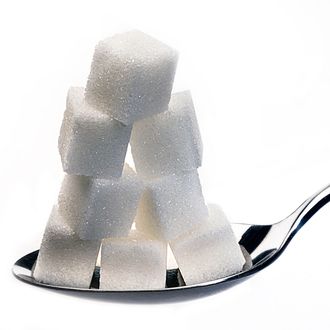
Underhanded as it was, the $100 million that Coca-Cola spent on “health research” before it got outed last year is apparently just the tip of the sham-science iceberg when it comes to hiding sugar’s bad health effects: Newly discovered documents show that in the ’60s, Big Sugar secretly funded important research that effectively swayed nutrition guidelines and health policy in America for the next 50 years. An article explaining how this all went down was published Monday in JAMA Internal Medicine; it details how the industry’s primary lobby group — known as the Sugar Research Foundation back then — paid Harvard researchers to push back against the widely held scientific belief that too much sugar is bad for the heart.
For about $50,000 in today’s dollars, these scientists, including a professor who went on to become the USDA’s head of nutrition and another who was among the first to study the diet’s effects on heart disease, published a two-part review discrediting research that previously linked sugar consumption to coronary artery disease. Instead, the authors blamed fat almost entirely. Most damning, the lobby group’s research director dialogued with them directly, sending a note before the paper appeared in the New England Journal of Medicine in 1967 that said, “Let me assure you this is quite what we had in mind and we look forward to its appearance in print.” In the end, Harvard’s researchers wrote that reducing cholesterol and saturated fat in the diet was “no doubt” the best way to prevent heart disease, and by the ’80s “few scientists believed that added sugars played a significant role” in heart disease, the team behind this exposé says.
That lobby group, now called the Sugar Association, said in a statement yesterday that it’s “challenging for us to comment on events that allegedly occurred 60 years ago, and on documents we have never seen,” and believes it’s a “disservice” that anyone would allow tricks like the one carried out by its precursor to “brand” or “taint” industry-funded research in the future. The chair of Harvard’s nutrition department also called it a “useful warning” about bias in medical research — a growing problem these days — but claimed the scientific community’s ideas about conflicts of interest “have changed significantly” in the last 50 years.




